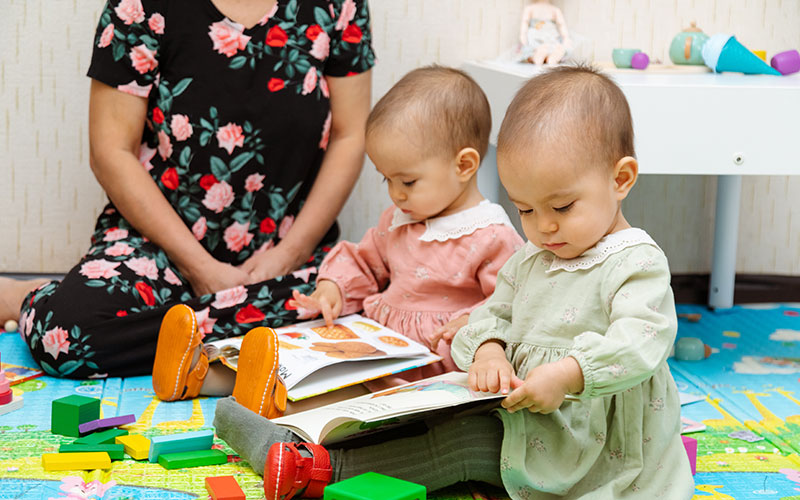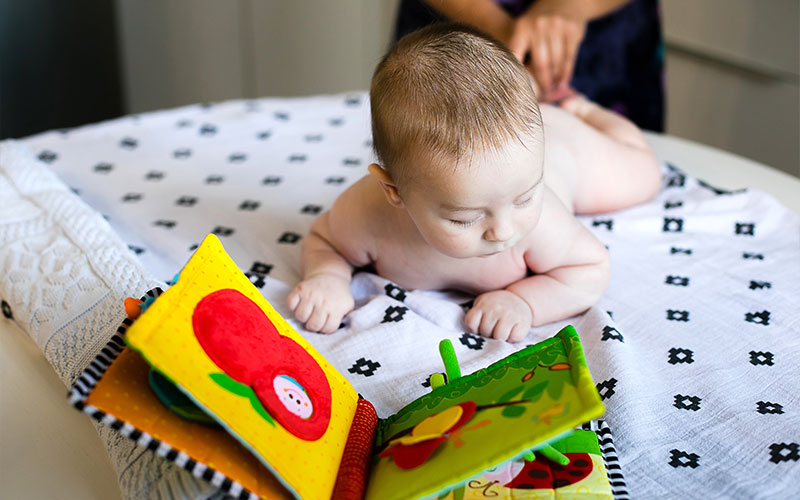Introduction
Providing early education for babies is more than just childcare—it lays the foundation for their lifelong learning journey. In this comprehensive guide, we’ll explore the importance of early education for babies and delve into practical strategies for fostering their development across various domains.

The Significance of Early Education
Early education for babies plays a pivotal role in shaping their cognitive, social, emotional, and physical development. By engaging infants in stimulating activities and nurturing environments, parents and caregivers can support the growth of crucial skills during this formative period.
Understanding Infant Development
Babies undergo rapid developmental milestones during their first years of life. From sensory exploration to language acquisition, each stage presents unique opportunities for learning and discovery. Understanding these developmental domains can guide caregivers in creating enriching experiences for their little ones.
Creating Stimulating Environments
Environments rich in sensory stimuli are essential for promoting brain development in babies. Simple activities like tummy time, sensory play, and interactive games facilitate sensory exploration and motor skill development. Additionally, incorporating age-appropriate toys and books can spark curiosity and encourage early literacy skills.
Fostering Social Interaction
While babies may not engage in conventional social interactions, they thrive on emotional connections with caregivers. Responsive caregiving, including eye contact, smiles, and gentle touch, lays the groundwork for secure attachments and emotional resilience. Furthermore, exposure to varied social settings, such as playgroups or childcare centers, exposes babies to diverse social cues and fosters socialization skills.
Nurturing Language Development
Language acquisition begins long before babies utter their first words. Through babbling, cooing, and imitating sounds, infants lay the groundwork for expressive and receptive language skills. Reading aloud, singing songs, and engaging in conversation expose babies to rich language patterns and vocabulary, setting the stage for future communication abilities.
Promoting Cognitive Growth
Babies are natural explorers, constantly absorbing information from their surroundings. Simple activities like peek-a-boo, object permanence games, and cause-and-effect toys stimulate cognitive development and problem-solving skills. By providing a safe and stimulating environment, caregivers can nurture infants’ innate curiosity and cognitive abilities.
Supporting Emotional Well-being
Emotional development is a cornerstone of early education for babies. Responsive caregiving, consistent routines, and positive reinforcement create a nurturing environment where babies feel secure and loved. Teaching emotional regulation skills, such as self-soothing techniques, empowers babies to navigate their feelings and build resilience from an early age.
Encouraging Physical Exploration
Physical activity is essential for babies’ overall health and development. Opportunities for gross motor play, such as crawling, cruising, and supported walking, strengthen muscles and improve coordination. Additionally, sensory experiences like messy play and outdoor exploration stimulate the senses and promote sensory integration.
Nutrition and Health
Proper nutrition is vital for supporting babies’ growth and development. Breast milk or formula provides essential nutrients for brain development, while introducing solids introduces new tastes and textures. Regular check-ups with a pediatrician ensure babies are meeting developmental milestones and receiving necessary vaccinations to safeguard their health.
Parental Involvement and Support
Parents are their baby’s first and most influential teachers. By actively engaging in their child’s early education journey, parents can maximize learning opportunities and strengthen the parent-child bond. Seeking support from community resources, such as parenting classes or support groups, can provide valuable guidance and reassurance for new parents.

Internal links : https://mrbabar.online/how-to-keep-babies-safe-from-injuries/
External links :
Early education plays a crucial role in building a solid foundation for a child’s future success. Activities that engage babies from birth can stimulate brain development and lay the groundwork for literacy and cognitive skills. For instance, repetitive tasks, such as reading bedtime stories, playing object permanence games, or singing songs, can boost language acquisition and memory development. Research shows that early experiences, such as play, touch, and interaction, have a long-lasting impact on brain architecture, contributing to cognitive abilities and emotional resilience later in life
Harvard Center on Developing Child
If you’re interested in further exploring these topics, you can check out detailed resources on the importance of early childhood development and its lasting effects on future learning and behavior from the Harvard Center on the Developing Child and Happy Tot Shelf.
